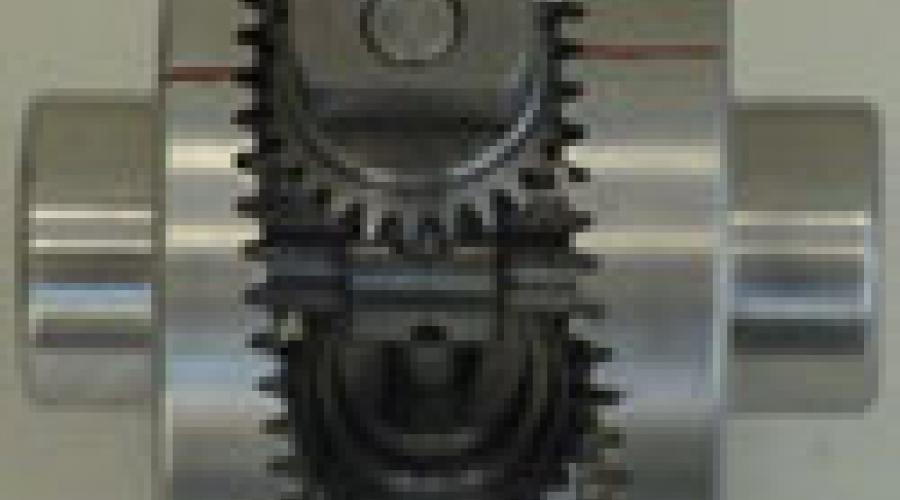
A team of students from the Athens Laboratory of Business Administration (ALBA) were awarded second place at the 'European Business Plan of the Year Competition 2006' which took place on 7-8 July in Rotterdam, the Netherlands. The team's business plan was based on a differential with curved gears, which can impart movement in two directions in order to lock the wheels of a car without vibrations.
This system was invented by Konstantinos Spentzas, Professor and Chairman of the Laboratory of Dynamics and Structures of the National Technical University of Athens and by the inventors Theodoros and Vasilios Tsiringakis. The 'controllable differentiation differential with undulated gears' is simple and efficient. It interacts minimally with the other subsystems of the car and boosts the differentiation of speed between the wheels of the same axis.
Particularly, the new differential is composed of two pairs of gears in a 'planet' - 'satellite' engagement. The 'satellites' move in contact with the 'planets', thanks to the curved shape of the 'planets', but also oscillate back and forth in an axis perpendicular to the planet's axis. By controlling this movement, through the use of simple means, the distribution of the torque between the two wheels (or between the two axes) can be controlled to a greater extent. The differential can bring about a high degree of differentiation in the angular velocity of the transmission wheels in a self-controlled manner, without interacting with the other systems.
It would be possible for the ABS sensors installed to detect the differences in speed between the wheels that spin in connection to actuators (mechanical, hydraulic, electrical or electronic systems) that control the 'satellite' gears through two very small pistons. The results would be an active control of the torque distribution (without friction).
The mechanism is simple with low consumption of fuel and minimal modification costs. The advantages of the Greek invention, when compared to similar patents in this specific field, are its simple design and its feasibility when applied to large vehicles. The invention can be put to use immediate by car manufacturers, automobile-part makers, companies manufacturing pumps, etc.
The business plan selected at the international competition was developed by a team of students from ALBA, 'CURVE DYNAMICS' (Georgia Mavrakis, Angeliki Menagia, Ilias Pitsavos, Nikolaos Roukas and Goce Serafimov). The team was supervised by Dr Vasilis Theoharakis, Associate Professor in Marketing and Entrepreneurship at ALBA.
The 'European Business Plan of the Year Competition', organised by INSEAD (France) and the London Business School (United Kingdom) since 2003, encourages entrepreneurship and the creation of new businesses. Other groups participating in this year's competition came from the following schools: SDA BOCCONI (Italy), Cranfield School of Management (U.K.), EM-Lyon (France), The Management School/Imperial College (U.K.), INSEAD (France), London Business School (U.K.), Rotterdam School of Management (Holland), SSES-Stockholm School of Entrepreneurship (Sweden), Vlerick Leuven Gent Management School (Belgium) and WHU Koblenz-Otto Beisheim Graduate School of Management (Germany). The first prize was awarded to the Swedish team from SSES for the business plan 'FASSHE'. FASSHE is a plan for the development of an innovative system for the inventory and management of bars and restaurants, which allows automated ordering, and stock-controlling of bottles.








